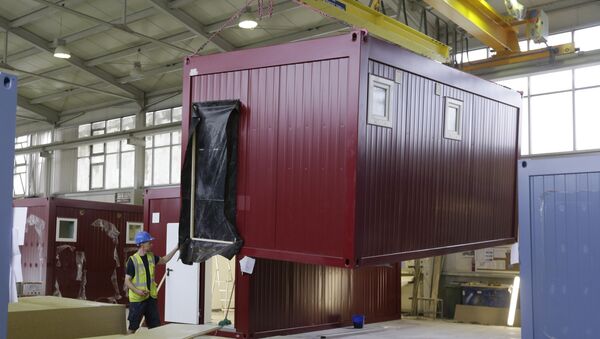The construction companies JM and Veidekke were among the first that slammed modular housing. Veidekke CEO Lennart Weiss roasted the idea of modular homes in an interview with the Swedish newspaper Dagens Samhälle as far back as in April 2015.
"This would be the worst homes at the highest cost ever. Modular houses are an economic, social and political disaster. This promotes exclusion and shows that Swedish politicians fail to display a holistic approach to the housing crisis," Lennart Weiss said.
The idea of modular housing was also slammed by Ulf Perbo, one of the government's foremost housing experts.
"It will be very substandard housing at an overblown cost. It seems like a pure panic reaction which is likely to characterize [Sweden's] housing policy for 10-20 years to come," Ulf Perbo said.
In the city of Malmö, not a single modular residence has been completed until now, two years after the refugee crisis. Meanwhile, the rent for 21 square meter apartments stacked on top of each other has reached 6,000 SEK ($700) a month.
"The cost of modular housing has become extremely high, it's a lot of money," Malmö City supply manager Lotta Ahlfors told Svenska Dagbladet.
"It has become more difficult to build temporary houses than to build a permanent house. We have a precarious position. The state and municipalities have not worked in sync," Jahja Zeqiraj of the Gothenburg Property Board said.
According to Swedish housing portal Hur vi bor ("How we live"), nine out of ten Swedes live in a municipality that is suffering from a housing shortage. According to previous estimates by the Swedish Housing Board, a total of 710,000 new homes will be needed in Sweden, a nation of 10 million, by 2025.
Never miss a story again — sign up to our Telegram channel and we'll keep you up to speed!





